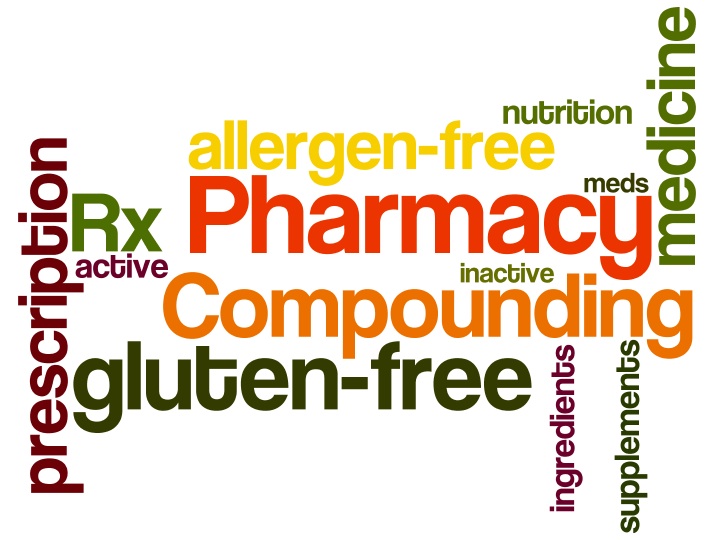
Are you allergic or intolerant to an ingredient commonly found in the commercially manufactured form of a medication? Both pill and liquid forms of prescription and over-the-counter medications contain fillers, binders, and other substances. Also included are dyes, to which you may be allergic. This can make the medication that you are supposed to be taking to get well a potentially fatal treatment.
Oral medications in the form of tablets and capsules are a potential source of gluten contamination. Medications are composed of many ingredients, both inside and outside of the product. These ingredients,(also known as excipients), include the active component, absorbents (which absorb water to allow the tablet to swell and disintegrate), protectants, binders, coloring agents, lubricators, and bulking agents (which allow some products to dissolve slowly as they travel throughout the intestinal tract). Excipients can be synthetic or from natural sources that are derived from either plants or animals. These are considered inactive and safe for human use by the FDA, but can be a potential source for unwanted reactions.
Currently, there is no law that mandates that the drug manufacturers disclose the source of these excipients in any public record or database, and we have to rely on calling the manufacturer to obtain information. Anybody who has ever done this knows how difficult it is to obtain accurate information. Some drug companies are very open with their information, while others either give incomplete or even false information. Often you are told that the company does not use any gluten in the manufacturing of their product, but they won’t guarantee it to be gluten-free.
There is a wide range of allergens that are commonly found in the inactive ingredients that bind the active ingredients in medication together. Some of the most common allergens include:
- Gelatin

- Peanut oil derivatives
- Wheat (Gluten)
- Dairy (Lactose)
- Corn
- Potatoes
- Coconut
- Dyes
- Sugar
- Preservatives
Our pharmacist can compound the drug without the filler that you may be allergic to. Our compounding pharmacists can create a personalized medication, formulated to give you the treatment needed while leaving out the problematic ingredient.
